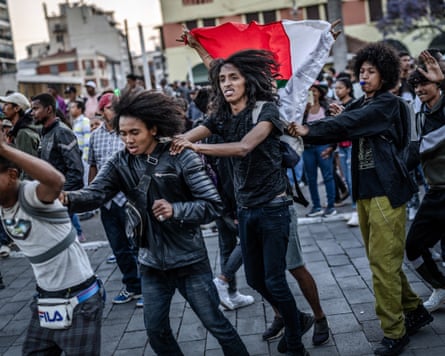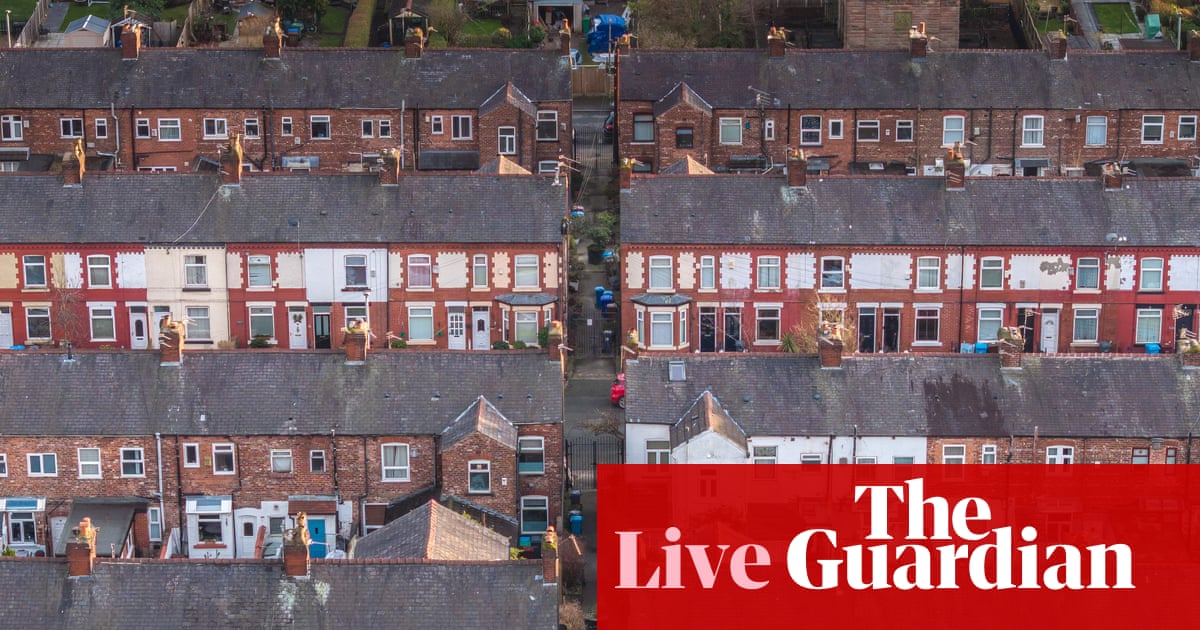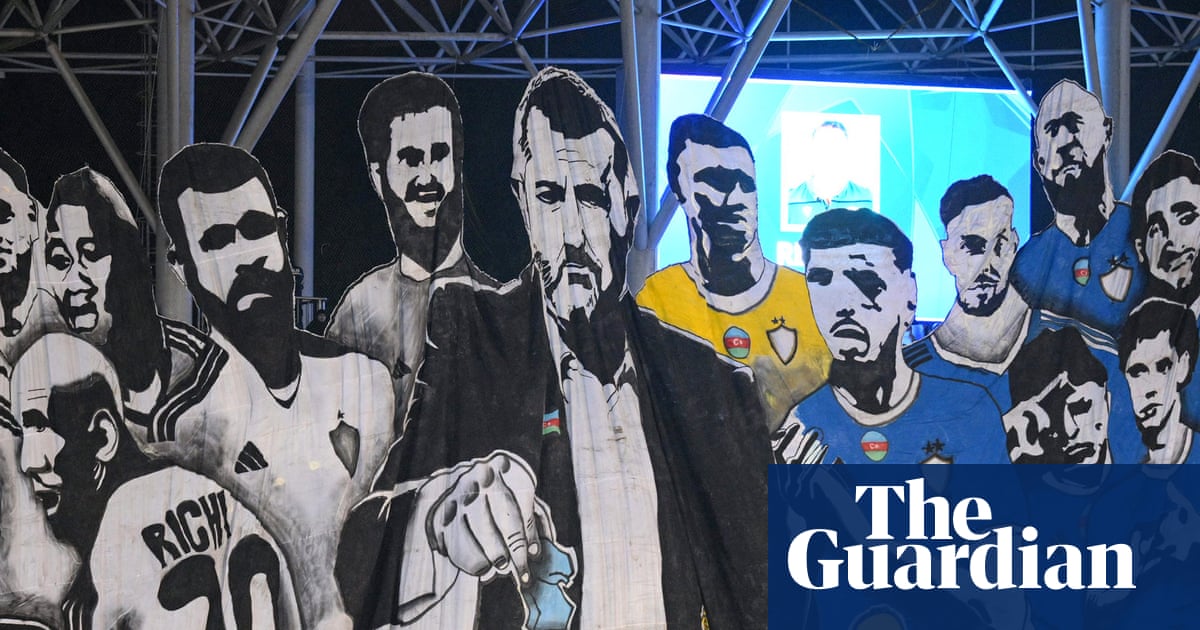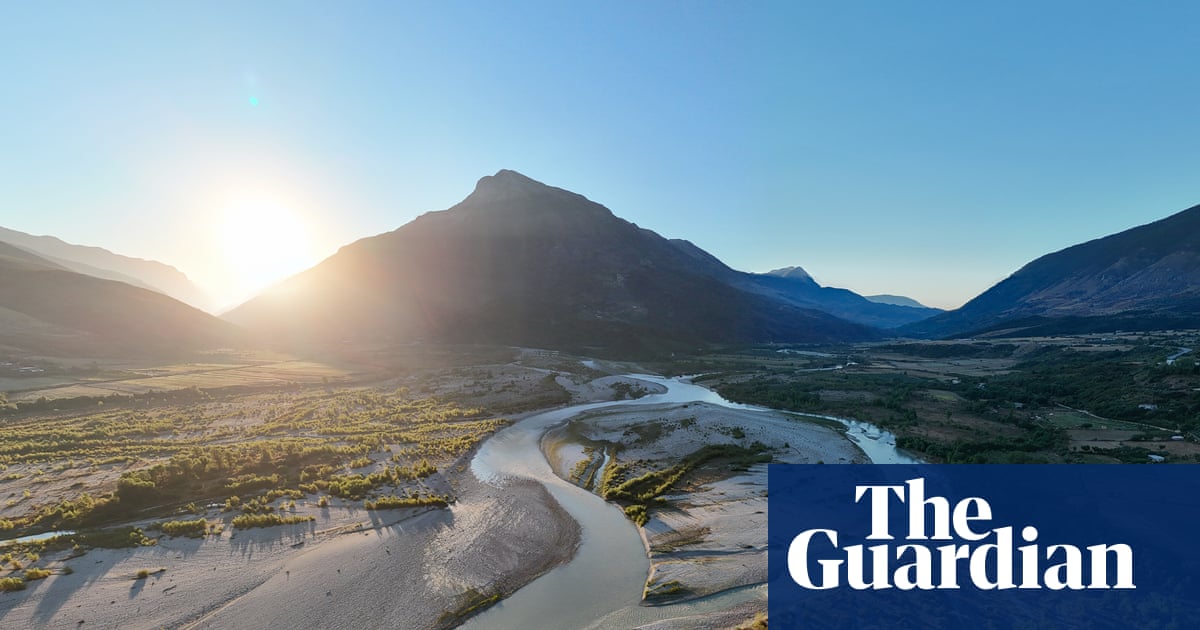An elite military unit said it had taken power in Madagascar on Tuesday, after the country’s parliament impeached president Andry Rajoelina after weeks of anti-government protests.
Rajoelina, who said on Monday in a Facebook Live video that he had gone into hiding after attempts to kill him, had refused demands to step down, but the demonstrators won the backing of the influential Capsat unit at the weekend.
On Tuesday, the presidency posted a statement saying there had been an “attempted coup d’état”.
It continued: “The president of the republic remains fully in office and is ensuring the maintenance of constitutional order and national stability.”
Rajoelina has not been seen in public in Madagascar for several days. He reportedly fled the Indian Ocean island on a French military aircraft on Sunday night, after the Capsat military unit said on Saturday that it would not shoot at protesters.
While no order for the military to shoot civilians had been made public, the gendarmerie, a police force controlled by the Ministry of Defence, killed demonstrators during the early days of youth-led protests that began on 25 September.
The marches started in protest against water and electricity outages and quickly grew to calling for radical political reform and the president’s resignation.

Col Michael Randrianirina, the leader of Capsat, which is short for Corps d’administration des personnels et des services administratifs et techniques, told reporters at a government building in the capital Antananarivo on Tuesday that the military would form a council of officers from the army, gendarmerie military police and police, while a prime minister would be appointed to “quickly” form a civilian government.
Randrianirina said in the statement: “Perhaps in time [the council] will include senior civilian advisers. It is this committee that will carry out the work of the presidency … At the same time, after a few days, we will set up a civilian government.”
“We have taken power,” Randrianirina told Agence-France Presse, after reading out the statement.
Minutes earlier, the lower house of parliament had voted to impeach Rajoelina for desertion of duty. The official presidency Facebook account posted a statement saying that the parliamentary session was “devoid of any legal basis”. The president had dissolved parliament just hours before in a bid to rescue his position.
Capsat’s coup marked a dramatic fall from grace for Rajoelina, a 51-year-old former DJ who was himself brought to power by the military regiment, a unit that controls military logistics, in 2009, after street protests against the high cost of living and Rajoelina’s dismissal as mayor of Antananarivo by his predecessor as president, Marc Ravalomanana.
Rajoelina was initially president until 2014. He returned to power in 2019 and was re-elected in 2023, in a vote marred by allegations of rigging.
Madagascar is one of the world’s poorest countries, with a GDP per capita of just $545 last year, according to World Bank data. The island is rich in natural resources, including vanilla and precious gems, which campaigners say have been exploited by officials and corrupt businesspeople. The country ranked 140 out of 180 countries in Transparency International’s 2024 corruption perceptions index.
The United Nations said 22 people were killed in the first few days of the protest by security forces and during violence and looting by “individuals and gangs not associated with the protesters”. Rajoelina initially denied anyone had been killed, then said that 12 “looters and vandals” had died.
The protests were coordinated at first by Gen Z Madagascar, a leaderless group of young people. They use Discord and Signal privately, while posting publicly on Instagram and Facebook.
On Saturday, Capsat said it would not fire at protesters and called on other parts of the military to join forces with it. That afternoon, Capsat soldiers drove out of their barracks in southern Antananarivo, accompanied by thousands of cheering protesters, to the symbolic 13 May Square outside city hall.
On Sunday, Capsat said it was taking control of the military and appointed a new leader of the armed forces. The gendarmerie also fell in line, saying there had been “faults and excesses” in its response to the protests.
Also on Sunday, Gen Demosthene Pikulas, the head of Capsat, was installed as chief of the army staff during a ceremony at the army headquarters attended by armed forces minister Manantsoa Deramasinjaka Rakotoarivelo. “I give him my blessing,” the minister said of Pikulas.
Pikulas said to journalists after the ceremony that events in Madagascar had been “unpredictable”, adding: “The army has a responsibility to restore calm and peace throughout Madagascar.”
The Gen Z Madagascar movement celebrated the coup on Tuesday. “It’s a great day to be alive!!” it posted on its Instagram stories, followed by videos of people celebrating.
“I’m happy personally, because for now the army has been with us, the people, and it knows what we want and that’s what they’re doing right now,” said an 18-year-old activist who helps to run the Gen Z Madagascar social media accounts.
He continued: “So the president is calling it a coup, but he’s the one that left the country. He’s the one that came to power with a coup as well, so it’s very hypocritical.”
However, a fellow activist said he was “50:50” about the military’s intervention. “It was a must, because as you know, Madagascar was a very corrupt system and I’m happy that this is finally the end of this corrupt system,” he said.
“But … I don’t really know what intentions the military group have, so I prefer to stay on my guard and see what they want to do and what they are going to do.”
Jean-Luc Raharimanana, 58, a Malagasy novelist and playwright, also celebrated Rajoelina’s overthrow: “It’s a utopia in progress. I truly hope the result lives up to this magnificent struggle.”
Agence-France Presse contributed to this report

 3 months ago
73
3 months ago
73

















































